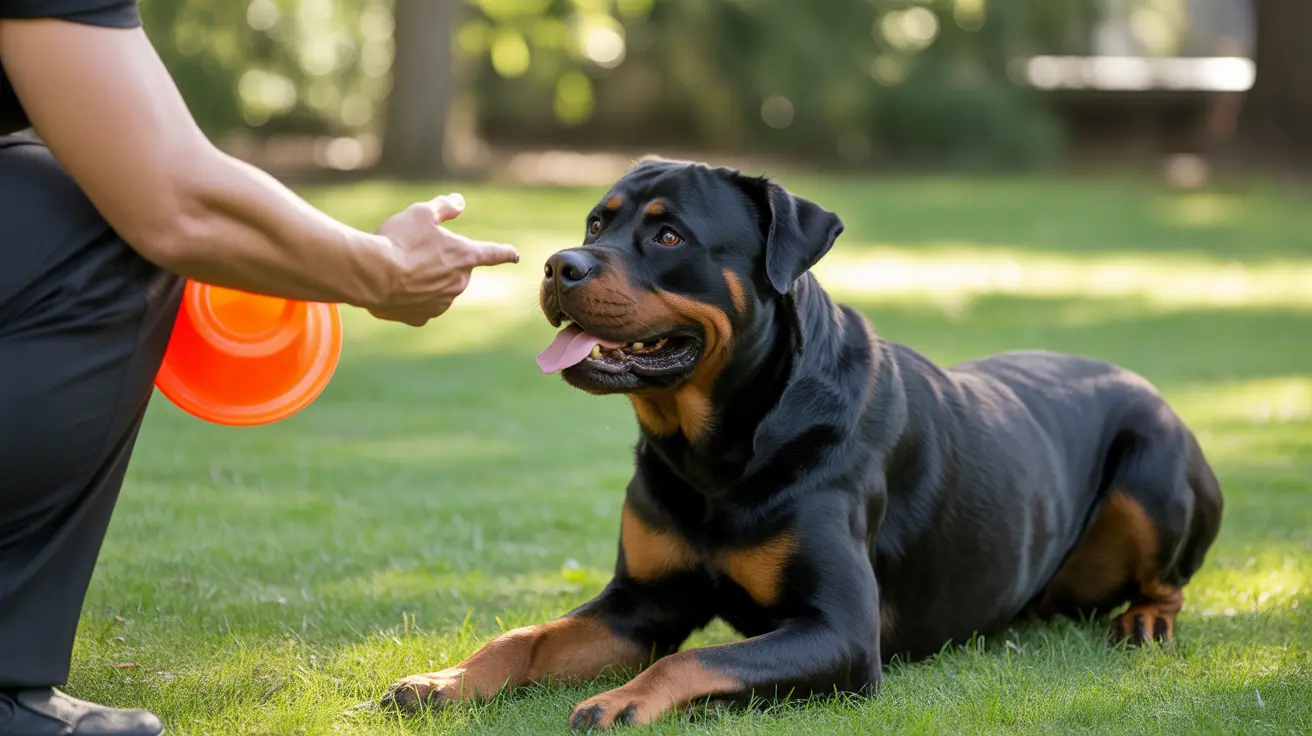When it comes to canine intelligence, Rottweilers consistently prove themselves as exceptional performers, ranking 9th among the world's smartest dog breeds according to renowned canine psychologist Dr. Stanley Coren's comprehensive research. This impressive standing isn't just a number – it represents their remarkable ability to learn commands quickly, solve problems independently, and excel in various working roles.
Let's dive deep into what makes Rottweilers stand out in the intelligence department and explore how their cognitive abilities shape their potential as both working dogs and family companions.
Understanding Rottweiler Intelligence Rankings
According to Dr. Coren's extensive study, which surveyed 199 North American obedience trial judges, Rottweilers demonstrate exceptional cognitive abilities across multiple dimensions. They can learn new commands in fewer than five repetitions and show a remarkable 95% first-command obedience rate – far surpassing the average dog's capabilities.
This places them in elite company, ranking just below breeds like Border Collies, Poodles, and German Shepherds, while outperforming hundreds of other breeds in standardized intelligence assessments.
The Three Dimensions of Rottweiler Intelligence
Working and Obedience Intelligence
Rottweilers excel particularly in working and obedience intelligence, demonstrating an exceptional ability to learn and follow human commands. Their quick learning capacity makes them ideal candidates for advanced training and complex tasks.
Adaptive Intelligence
These powerful dogs show remarkable problem-solving abilities and can learn from past experiences. Many Rottweiler owners report their dogs figuring out solutions to new challenges independently, from opening doors to understanding daily routines.
Instinctive Intelligence
Drawing from their heritage as guardian and droving dogs, Rottweilers possess strong instinctive intelligence. This manifests in their natural ability to protect their families and assess situations with remarkable discernment.
Training Implications of Rottweiler Intelligence
The high intelligence of Rottweilers means they require specific training approaches to reach their full potential. These dogs thrive on mental stimulation and can become bored or destructive without proper engagement.
Key training considerations include:
- Regular mental exercise through puzzle toys and training sessions
- Consistent, positive reinforcement-based training methods
- Early socialization and exposure to diverse environments
- Assignment of specific tasks or jobs to fulfill their working dog heritage
Professional Applications of Rottweiler Intelligence
Their exceptional intelligence makes Rottweilers valuable assets in various professional roles, including:
- Police and military service
- Search and rescue operations
- Therapy and service dog work
- Competition obedience and agility trials
Frequently Asked Questions
Where does the Rottweiler rank among the most intelligent dog breeds according to expert research?
Rottweilers rank 9th among all dog breeds for intelligence, according to Dr. Stanley Coren's research, placing them in the top tier of canine cognitive ability.
What types of intelligence do Rottweilers excel in, and how do these affect their behavior and training?
Rottweilers excel in working/obedience intelligence, adaptive intelligence, and instinctive intelligence. This comprehensive intelligence profile makes them highly trainable, excellent problem-solvers, and naturally skilled at their traditional guardian roles.
How quickly can Rottweilers learn new commands compared to other dog breeds?
Rottweilers can learn new commands in fewer than five repetitions, while the average dog requires 25-40 repetitions. They also obey first commands 95% of the time, compared to the average 50% obedience rate of other breeds.
What training methods work best for taking advantage of a Rottweiler's high intelligence?
Positive reinforcement training, consistent mental stimulation, and task-oriented exercises work best for Rottweilers. Their intelligence requires engaging, varied training sessions that challenge both their mental and physical abilities.
How does Rottweiler intelligence influence their suitability for working roles like police or service dogs?
Their high intelligence makes Rottweilers excellent candidates for working roles, as they can quickly learn complex tasks, adapt to new situations, and maintain focus on their duties. This intelligence, combined with their natural protective instincts, makes them particularly valuable in police, military, and service work.
Conclusion
Rottweiler intelligence rankings consistently demonstrate why these dogs are considered among the world's smartest breeds. Their combination of quick learning, problem-solving abilities, and strong instincts makes them exceptional working partners and family companions. However, this intelligence also means they require dedicated training, mental stimulation, and proper guidance to reach their full potential.






